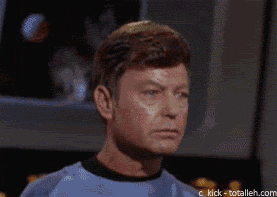thejohnnygold, I will also try (!) to keep my comments short, since I think we’ve exhausted my therapeutic needs at this point.
Regarding variance. I entirely disagree. You want large variance only when you’re the underdog and want the unexpected outcome. Good teams do not need or want high variance players (and outcomes) for that very reason. As a good team, you want the expected outcome, since the expected outcome is that you win. I would have a hard time believing that Morey has said anything to the contrary.
The only thing I can find about Morey and variance that is somewhat related to this context is in this article: http://sciencewitnes...-things-data-2/. There, Morey noted that when the Rockets lacked superstars (i.e., they were not a good team), he liked high variance players because they could get someone who could improve them dramatically -- and conversely, they weren’t really hurt if the player flamed out. (For that reason, I had and have no problem with Morey’s selection of Royce White.) Even in that context, he’s not talking about getting a player who is always going to be up or down; instead, he’s talking about getting young players who could develop into really great players or players who will just flame out. He’s also talked about variance in the context of how chance can play out in an individual series. But that’s, of course, an acknowledgment of chance in a small series and the hope that it plays to your advantage. That doesn’t really have much to do with signing a player like Smith. Indeed, if anything, high variance players are particularly harmful in a sport like basketball with a long playoff. A high variant player can singlehandedly win a series, but when they are, on average, terrible like Smith, they are much more likely to lose a series. And, more importantly, it’s incredibly unlikely that they will play well for 3 or 4 series. And that brings me to the more important point: regardless of whether Smith occasionally will play a good game, that good game is balanced out by 2 or 3 bad games (hence his terrible numbers).
Regarding my mind being made up. I’ve been upfront that I don’t think Smith is a good player, and I’ve listed reasons why I think that’s so. And while I’ve appreciated the comments people have made, no one has really rebutted my points. I say that because this is not a matter of me being stubborn or faking wanting to have an honest dialogue. I think the closest you’ve come to addressing the fact that Smith has not produced is your last comment about Smith’s 09-10 season. That was a good season. But it was also an aberration and five years ago. I don’t think it’s rational to expect Smith to play like that again. It’s, at best, wishful thinking.
I think last night’s game was a great example of what we’ll get from Smith. He made an amazing block. We all remember that. But he also jacked up a lot of dumb shots. True, some of them went in yesterday. Good for the Rockets. But we know, in the long run, that he’ll make those shots at an incredibly low clip. Will he occasionally go 3 for 5 from the outside? Sure. He’ll then follow that up with making 2 of his next 22.
I also agree with you regarding McHale’s interview. That being said, either he’s not telling Smith to stop shooting outside shots or he is and Smith is not listening. Either one of those outcomes are not comforting and, for me, merely confirms why this was a terrible signing.
And, with that, I think I’ve exhausted my ability to handle a discussion about Josh Smith. And I think I've settled in on where I now stand. As I said earlier, I hope I am wrong and I hope he somehow becomes a league average player. But I doubt it. Perhaps I’ll return here when the Rockets get knocked out of the first round of the playoffs after Smith shoots 35%.  At least, by then, baseball season will be in full swing . . .
At least, by then, baseball season will be in full swing . . .














